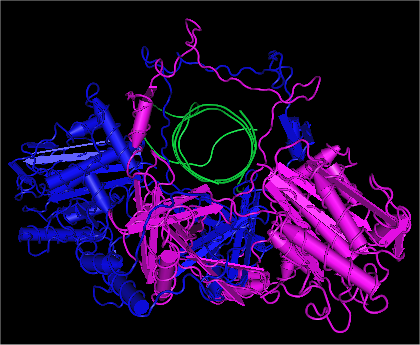 In the very latest Nature issue (August 5), a paper presents Foldit which is a program for predicting protein structures. But it’s kinda special program: better say, it’s a multiplayer online game. Thus, its leitmotiv is “Solve puzzles for science”.
In the very latest Nature issue (August 5), a paper presents Foldit which is a program for predicting protein structures. But it’s kinda special program: better say, it’s a multiplayer online game. Thus, its leitmotiv is “Solve puzzles for science”.
If you are not a biologist or structural bioinformatician, that is still fine: stop by the dedicated page The Science Behind Foldit. Arstechnica is presenting the goal of Foldit quite well. If you want to know more details about how it works, read the original article by Cooper et al.; here is the abstract:
People exert large amounts of problem-solving effort playing computer games. Simple image- and text-recognition tasks have been successfully ‘crowd-sourced’ through games, but it is not clear if more complex scientific problems can be solved with human-directed computing. Protein structure prediction is one such problem: locating the biologically relevant native conformation of a protein is a formidable computational challenge given the very large size of the search space. Here we describe Foldit, a multiplayer online game that engages non-scientists in solving hard prediction problems. Foldit players interact with protein structures using direct manipulation tools and user-friendly versions of algorithms from the Rosetta structure prediction methodology, while they compete and collaborate to optimize the computed energy. We show that top-ranked Foldit players excel at solving challenging structure refinement problems in which substantial backbone rearrangements are necessary to achieve the burial of hydrophobic residues. Players working collaboratively develop a rich assortment of new strategies and algorithms; unlike computational approaches, they explore not only the conformational space but also the space of possible search strategies. The integration of human visual problem-solving and strategy development capabilities with traditional computational algorithms through interactive multiplayer games is a powerful new approach to solving computationally-limited scientific problems.
Happy folding!
Image source : wikimedia commons
